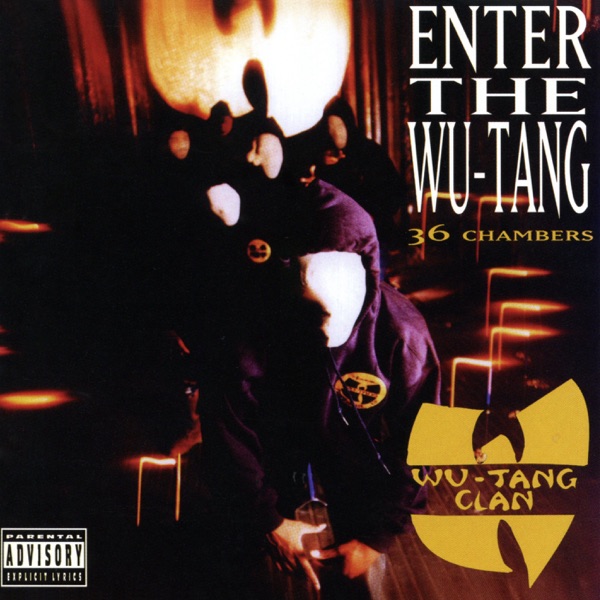Enter the Wu-Tang (36 Chambers), by Wu-Tang Clan
Suggested by Stuart Taylor
I’m shocked at the lack of troll suggestions for the Masterlist.
Sure, I’ve had Parry Grip, and George Formby is somewhere in the catalogue, but the majority of suggestions are well-meant, by well-meaning folks. It’s a shame, as it’s fun to snark at the tune from time to time, but I’m happy that everyone is open and honest. “Here’s stuff I like,” the suggestions list says. “I hope you like it too.”
If I were suggesting albums for someone to review, I’d definitely spend a Troll Suggestion on Wu-Tang Clan’s Once Upon A Time In Shaolin.
Once Upon A Time In Shaolin is the band’s seventh studio album. It had a limited release. Very limited. Limited to a single copy, housed in a jewel-encrusted box, sold at auction to the hedge fund manage Martin Shkreli for two million dollars. Bound by an eighty-eight-year clause that prohibits the album’s commercial exploitation, although it could be released by the buyer for free, the album has not made it into the public domain. It’s now owned by the federal courts, a seized asset after Shkreli’s conviction for fraud, so it’s unlikely to appear any time soon.
Before my listen, Wu-Tang Clan resided in that gated community of bands whose reputation outperforms their music. I wasn’t even sure they were Hip Hop, and I confuse them with Insane Clown Posse. Track titles such as Bring Da Ruckus and Shame On a N*gga pointed me in the direction of Hardcore Rap, with the telltale E for Explicit appending every title acting as semaphore paddles to guide me home.
I’ve supped my fill of modern Hip Hop at this stage of the game, but this twenty-eight-year-old album is understandably Old School. It feels crafted and considered. It’s clear as a bell as it forgoes the latest fad of mumblewhoop nonsense. And it contains songs. Actual songs!
The songs in question are rather formulaic, but it’s a charming formula that works well. Every track’s lyrical conceit is the Ensemble Rap, in which each peacocking band member takes a verse at the mic. Rap is a collaborative affair, so there’s nothing unusual here, but the individual styles on offer are varied and, dare I say, melodic in timbre and hue. My personal favourite is ODB (Ol’ Dirty Bastard), who gurns and grimaces through his bars like a panto villain hopped up on Benylin.
Musically, RZA’s formula is simple: echoing and sparse drumbeats over walking bass and sometime rudimentary piano. It works, providing a pleasant guide rope that leads us through the fracas. Lyrically, we’ve a host of the usual tropes, as you’d expect from a release almost thirty years old, but there’s also a palpable sense of humour and playfulness that serves the band well. Their Eastern motif and Kung Fu Movie sheen is the most obvious gild to this lily, but this is no mere coat of comic paint applied as an afterthought.
As for songs, both C.R.E.A.M and Protect Ya Neck are particularly good, but my standout is the marvellously-titled Da Mystery of Chessboxin’. There’s no talk of Chess or Boxin’ in the lyrics, but that’s no detraction from the whole.
Enter the Wu-Tang (36 Chambers) scores 7/10. It’s an intriguing, engaging debut, but I doubt I’d pay two million dollars to hear further albums.
